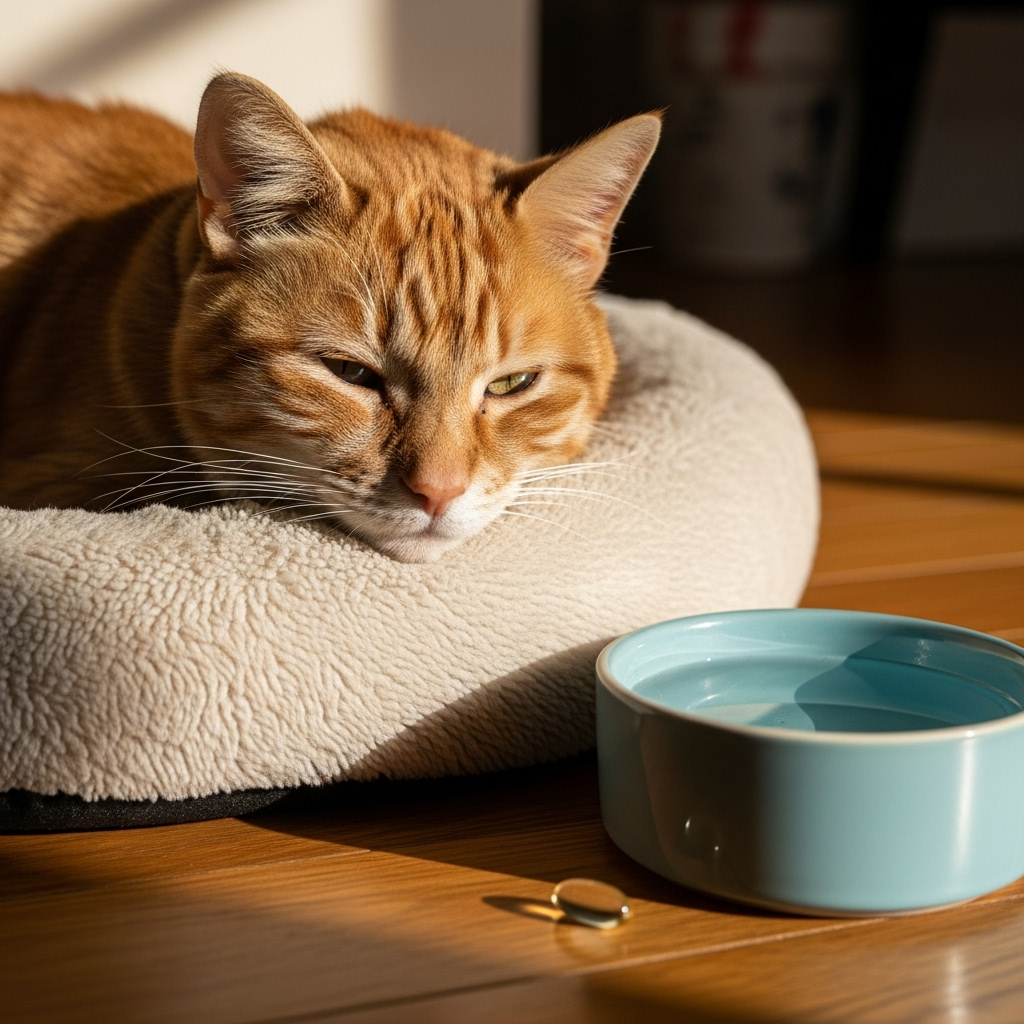Best Probiotics for Senior Cats: Gentle Digestive Support

As cats age, their digestive systems and immune responses can change. Choosing the right probiotic can help support digestion, stool quality, and overall gut balance without adding stress to an older cat’s system. This guide explains what to look for, how probiotics work, and safe ways to choose and use them for senior cats.
Why senior cats may benefit from probiotics
Senior cats commonly experience changes that can affect digestion: slower gut motility, altered gut bacteria, dental problems that change eating habits, and more frequent use of medications. Probiotics are live microorganisms that, when given in adequate amounts, can help:
- Support healthy stool consistency and reduce occasional diarrhea
- Help maintain intestinal barrier function and nutrient absorption
- Support immune health through gut-associated immune mechanisms
- Complement antibiotic or stress-related gut disturbances
What to look for in the best probiotics for senior cats
Not all probiotics are created equal. When choosing a probiotic for an older cat, prioritize safety, appropriate strains, and product quality.
Key product features
- Cat-specific formulation: Look for products labeled for cats; feline formulas use species-appropriate strains and dosages.
- Transparent strain listing: The label should list specific strains (e.g., Enterococcus faecium, Lactobacillus acidophilus, Bifidobacterium spp.) rather than generic “probiotic blend.”
- CFU guarantees: Choose products that guarantee colony-forming units (CFU) through expiration or at least at time of manufacture. Typical effective doses for cats are often in the range of millions to low billions of CFU daily, depending on product and strain.
- Multi-strain vs single-strain: Multi-strain products may offer broader benefits, but simple single-strain formulas (like Enterococcus faecium) can be gentler for sensitive seniors.
- Prebiotics or synbiotics: Some formulas include prebiotics (fiber that feeds beneficial bacteria). Synbiotics (probiotics + prebiotics) can be beneficial but may increase fermentable fiber—monitor for gas in sensitive cats.
- Delivery form: Powders that mix into food, paste, capsules that can be opened, or chewables formulated for cats. Choose a form your cat will accept—pastes and powders are often easiest for picky seniors.
- Storage & stability: Some probiotics require refrigeration; others are shelf-stable. Choose based on your routine and the product’s stability claims.
Strains commonly used for cats and what they do
Research in companion animals is growing. The strains below are commonly found in feline probiotic products and have been associated with digestive support in pets:
- Enterococcus faecium: Widely used in veterinary probiotics; associated with improved stool quality.
- Lactobacillus acidophilus and Lactobacillus rhamnosus: Support general gut health and may reduce mild GI upset.
- Bifidobacterium species: Often included to support colon health and fermentation balance.
- Bacillus subtilis (spore-forming): Shelf-stable, may survive stomach acid well; used in some cat formulas.
Note: Strain effects can be species- and strain-specific. A strain beneficial in humans is not necessarily ideal for cats.
How to give probiotics to a senior cat
- Start with a small trial: Give the lowest recommended dose for 3–7 days and monitor stool, appetite, and behavior.
- Mix with regular food: Powders and pastes are easiest to hide in wet food; many cats accept them when mixed into a favorite meal.
- Separate from antibiotics: If your cat is on antibiotics, give the probiotic at least 2–3 hours apart to reduce the chance antibiotics killing the probiotic organisms.
- Watch for side effects: Mild gas or a small change in stool may occur when starting. Stop and consult your vet if your cat becomes lethargic, develops fever, or has worsening GI signs.
When to be cautious or avoid probiotics
Most healthy senior cats tolerate probiotics well, but there are situations requiring veterinary guidance:
- Immunocompromised cats or those on heavy immunosuppressive medication—rare cases of bacteremia/sepsis have been reported with probiotics in immunocompromised humans and animals.
- Cats with central venous catheters or severe systemic illness—consult your veterinarian first.
- Cats with complex chronic disease (advanced kidney disease, pancreatitis, cancer)—ask your vet for tailored advice before starting supplements.
Pros and Cons
| Pros | Cons |
|---|---|
|
|
Choosing the best option for your cat
Talk with your veterinarian about your senior cat’s medical history and current medications. Ask them to recommend specific strains or products if your cat has chronic GI issues. If you decide to try a probiotic, choose one with clear labeling, appropriate strains for felines, and a stable CFU guarantee.
FAQ
How long before I see results?
Some cats show improvement in stool quality within a few days to a week. For chronic issues, allow 4–8 weeks to assess benefit, and discuss continuation with your veterinarian.
Are human probiotics safe for cats?
Some human probiotics contain strains that are harmless to cats, but they may not be optimized for feline needs or dosing. Use cat-specific products when possible and consult your vet before using human supplements.
Can probiotics help my cat with kidney disease or diabetes?
Probiotics are not a treatment for kidney disease or diabetes, but they may support digestion and comfort in some cats. Always check with your veterinarian before adding supplements to the routine of a cat with chronic disease.
What if my cat refuses the probiotic?
Try hiding powders or pastes in a small amount of strong-smelling wet food, switching to a different formulation, or asking your vet for alternatives like veterinary compounding.
Key Takeaways
- Probiotics can support digestion and stool quality in many senior cats, but results vary.
- Choose cat-specific products with transparent strain listings and CFU guarantees.
- Start at a low dose, monitor closely, and separate probiotics from antibiotics by a few hours.
- Consult your veterinarian before starting probiotics, especially for cats with chronic illness or weakened immunity.
- Stop and seek veterinary advice if your cat shows signs of systemic illness after starting a probiotic.
Disclaimer
This article provides general information about probiotics for senior cats and is not a substitute for professional veterinary advice. Always consult your veterinarian before starting any new supplement or treatment, particularly if your cat has existing health conditions or is taking medication.

Leave a Reply